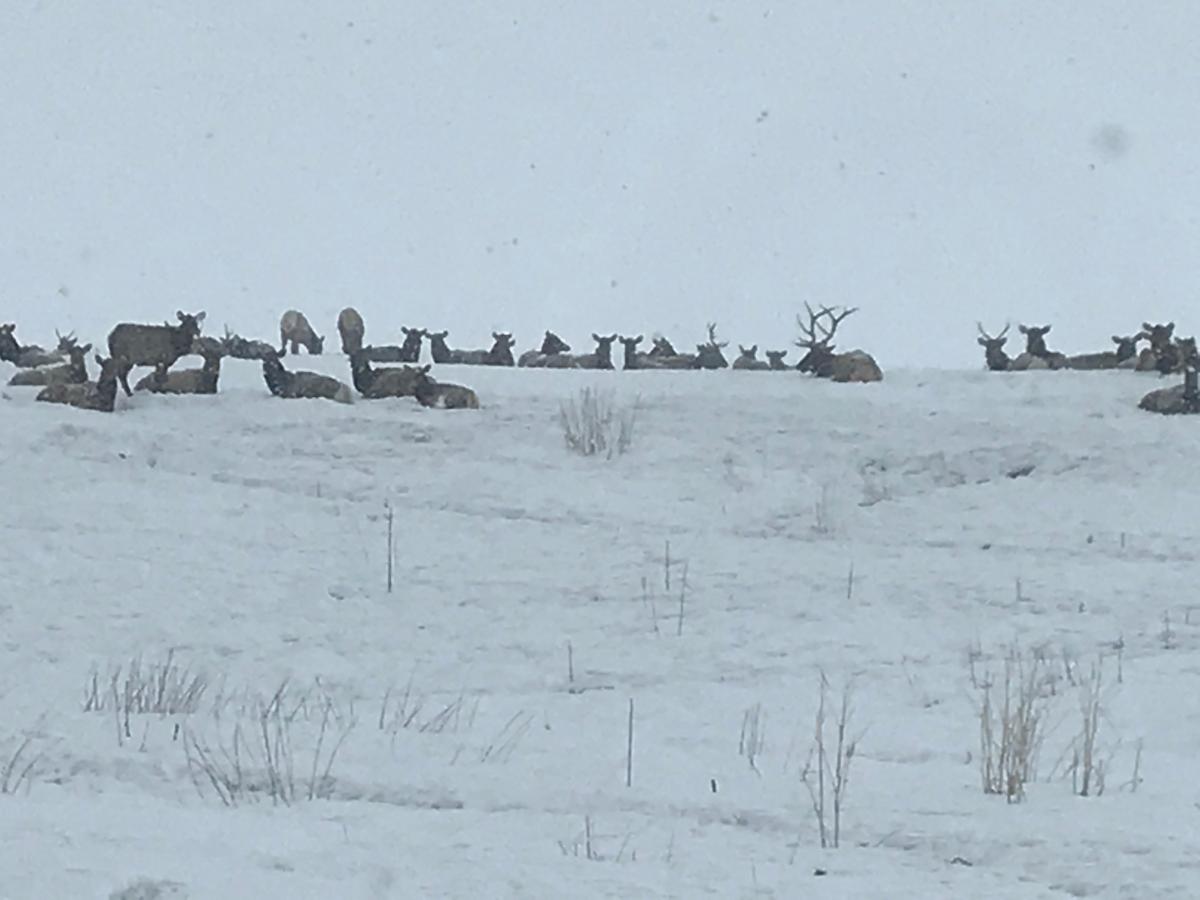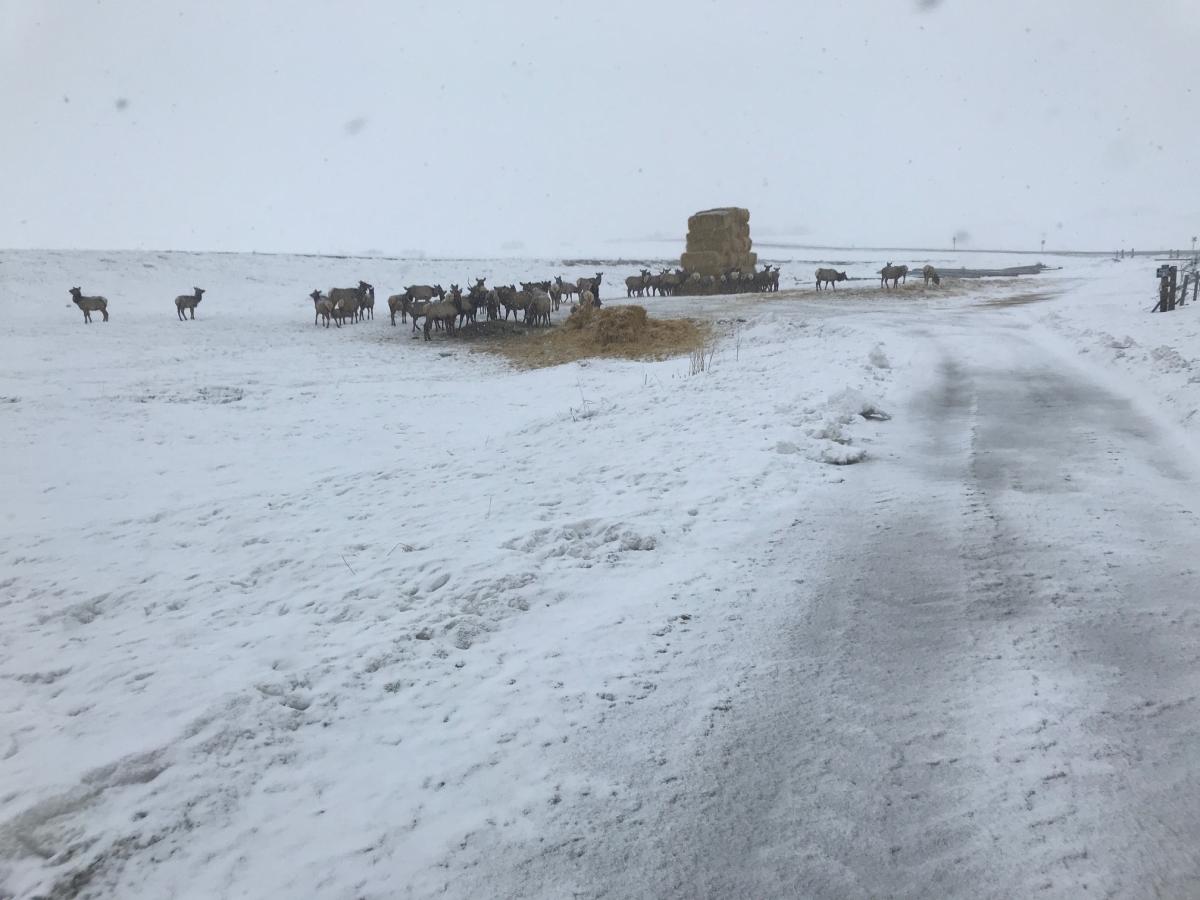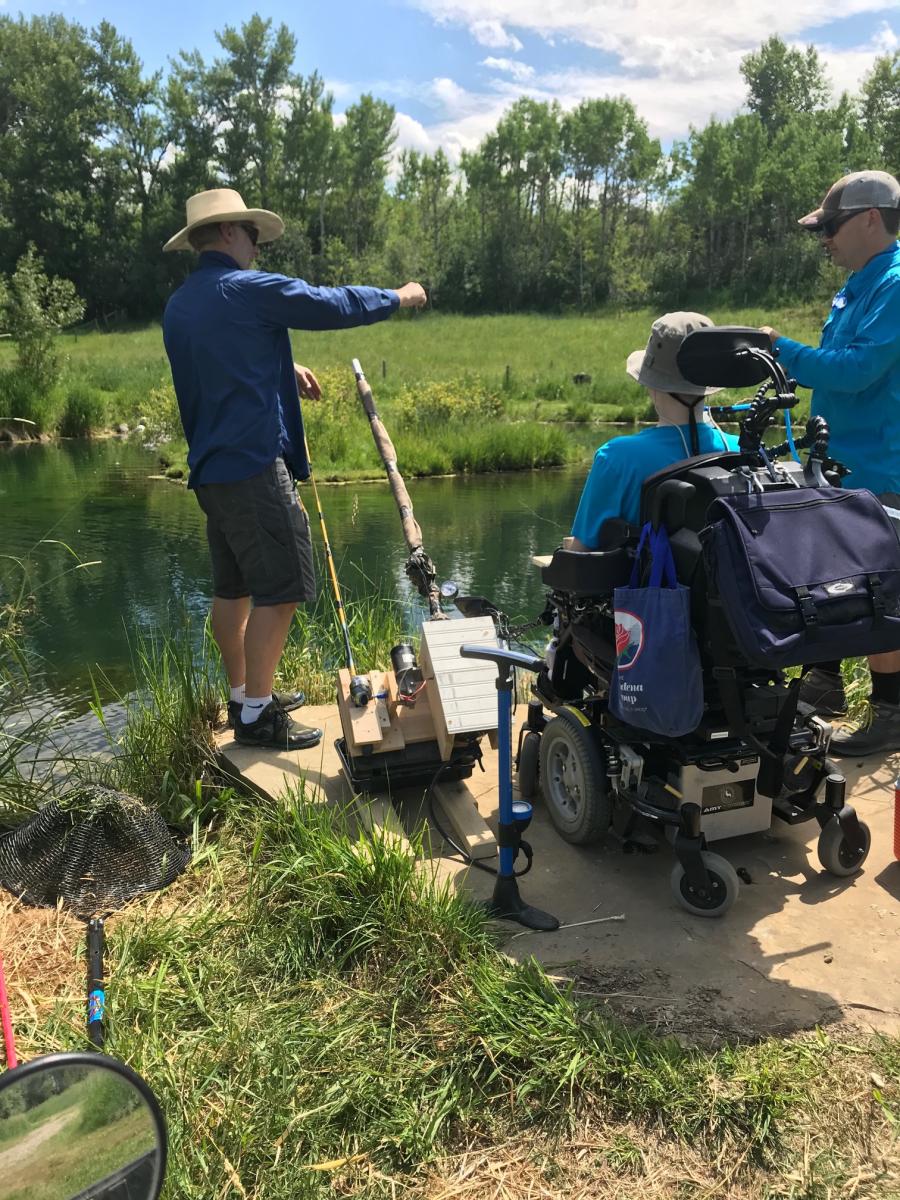Helping Hunters Succeed
By: John A. Baden, Ph.D.Posted on October 10, 2018 FREE Insight Topics:
Helping Hunters Succeed:
An Experiment in Economic Anthropology
I can tell when hunting season approaches—and not only by seeing leaves changing color and hearing elk bugling while I'm in the quiet of our hot tub. How? I get phone calls and visits from ‘friends” I’ve not heard from since last hunting season.
“Hey John, can I come out and hunt your ranch again this year?” My usual response is: “You know we get lots of requests and only allow one party at a time. I’ll put your name on our list.”
A neighboring family has taken excellent care of our commercial ag for many years. We need no help for regular farming operations. The same holds for landscape work, it’s well covered. However, I always welcome help with our spring creek, ponds, and trails. We want good and easy access for people with limited mobility, for example wounded warriors and those coping with cancer. 
We never charge for hunting—but there is a better way to ration access, offer it to those who help with our fish and wildlife habitat. I’m happy to share our fish and game with those who help, especially given my limitations due to injuries and age.
A few people consistently volunteer their help in maintaining our fishery and trails. I place them high on our hunting (and fishing) access list. Others never volunteer. To them I say: “I’ll put your name on our list.” And I do—at the bottom. Of course, they could earn their way up—we often need help weed-eating fishing access, trimming branches, and generally keeping our fishery attractive and accessible.
Ramona and I manage our ranch for both commercial agriculture and wildlife. Hunting is important to game management—and to controlling the number of elk ravaging our hay stacks, breaking down fences, and damaging irrigation lines. Also, while I respect the hunting tradition, I don’t quite understand some men’s passion for hunting. It must be like opera: Some individuals organize their lives around the Santa Fe opera season, others the Montana elk season.
Montana's elk and deer rifle season traditionally begins the fourth week of October and ends the Sunday after Thanksgiving. I am usually happy it's over. The reason? Rationing hunters' access to our ranch is a growing problem. I receive calls early in the morning and late at night, some from people I hadn't heard from since last year's season. Total strangers drive into our driveway asking to hunt. I understand why when people see herds of elk on our place.

We also provide trout fishing in our chain of five ponds, all linked by a coldwater spring creek.
Fly fishing presents a far smaller rationing problem, probably because people can't see our trout from the road. The elk however, are nearly as obvious as our steers, especially when in a herd of fifty or more and in sight from U.S. 191 or Cottonwood Road south of Gallatin Gateway.
Over the past two decades, the Montana average success for bulls and cows combined has been roughly twenty percent. The average Montana hunters spends about ten days hunting before killing an elk. And only about four percent of elk hunters kill a 6x6 or larger bull.

Hunting private land
Success rates on our place are high indeed--and hunting is easy. Many simply walk hidden in the dry Kleinschmidt Canal to approach elk feeding in our alfalfa fields. Only the next quarter or half mile requires stealth and hunting prowess. Tom Dickson is editor of Montana Outdoors magazine, a publication of the Department of Fish, Wildlife and Parks. He wrote: "The best way to get access to private land is to ask politely well before the season begins." Even better is to offer help.* With excellent hunting success and a price of zero dollars, demand far exceeds our supply. This means I must create a way to ration access. Here is my system for rationing elk hunting.
First, I give preferred access to people who help out at the ranch. This isn't skilled work, for example, whacking weeds by pond and stream banks, trimming branches along trails and roads, and maintaining the pavilion we offer to visitors.
Second, I'll give favorable consideration to those who volunteer for Cancer Support Community, Eagle Mount, Warriors and Quiet Waters, and similar groups' recreational programs on our ranch.

Third, hunters should read and be able to discuss Jim Posewitz's Beyond Fair Chase: The Ethics and Tradition of Hunting. I'll also direct them to FREE Insights on hunting and conservation. If they aren't interested in reading our thought on conservation and wildlife, I'm not interested in having them shoot here.
Finally, did the hunter display gratitude for access? One deer hunter gave us a gift certificate and another some fine lumber. An elk hunter spent a week working on FREE's office addition. Others helped out with our fishery.
Successful hunters who neglect us, not even offering us meat from the animals we fed, are off the list. If they ask next year, I'll give them this insight. They know why we must ration access and surely, they'll understand how we allocate hunting and fishing privileges.
*If you would like to hunt or fish, this property please notify jbaden@free-eco.org with your proposal and skill set.

